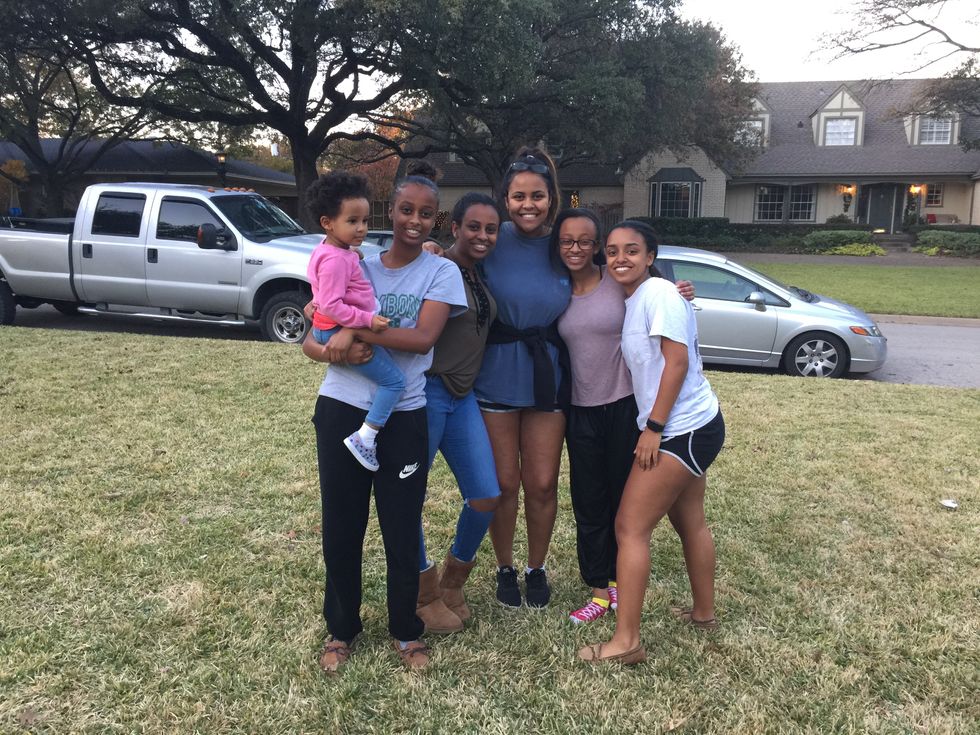Thanksgiving is a cheerful holiday.
Just hearing the word makes people feel happy and excited. When people think of Thanksgiving, they think of delicious food and a jovial atmosphere of family and friends. This could not have been more of the opposite for me all of my life until my freshman year.
Ever since I can remember, my parents have had problems with each other. They didn’t talk much, and when they did, they surely couldn’t agree on things.
Every year on this “special” and “exciting” holiday, I could expect one of two things.
Either my dad would go out of town and see a relative, and my mom, my brother, and I would pretty much pretend there wasn’t a holiday going on at all and go about our business; or my dad would stick around and we would eat a painfully awkward and mediocre meal at our actual dining table that we never used because we never ate meals together.
To me, neither was better or worse than the other. I just didn’t look forward to it and silently wished the day didn’t exist.
My freshman year, in early September or late August, my father proposed a trip during Thanksgiving. I wrote off the idea in my head, thinking it would just be a trip he would end up taking alone.
Again in late October, he brought it up to me in more detail: A trip to Dallas, Texas to spend Thanksgiving with the extended family of my dad’s second cousin.
I had never met anyone from that side before, so I was hesitant. I am of Ethiopian and Eritrean heritage, and in our culture, family is VERY important.
Here in Louisville, the Habesha (of Ethiopian and Eritrean heritage) population is very low. The culture immersion that I would get in a city like Washington, D.C., or Dallas, Texas isn’t available.
Furthermore, my family is spread out all over the globe, in Europe, Africa, Asia, and the U.S., so I see my family much less than most people. This reality has really inhibited me in the past. I’ve never felt pride in my nationality and I always felt kind of weird and out of place.
The family that we actually talked to regularly extended no farther than the people who live with me.
My father talked me into going, rambling on and on about how I needed to see my culture. Although still reluctant, I realized nothing could possibly be worse than the Thanksgivings I was used to, so I agreed.
Immediately upon my arrival at the house in Dallas, I was swarmed by hugs and kisses from people I had never seen before. There were kids running around everywhere, and the house smelt of delicious tsebhe and wot (cultural foods).
People instantly started talking to me as though we hadn’t just met. At the time, I was a little shy and kept to myself for the first couple of days.
Even then, all my distant aunts and uncles were caring for me like I was their own daughter. Thanksgiving came and went, and I finally felt like I was experiencing a little of what everyone talks about when they flutter with excitement over the holiday.
The next year, we returned, and my aunt tasked my cousin and me with choreographing a cultural dance with all 23 of the little kids, who ranged from ages 4-14.
The task was almost impossible, but we pulled it out. After Thanksgiving dinner, we cleared out space and surprised all the adults with three dances that left some of the moms in tears.
I suddenly felt full of love and attachment towards everyone in the room.
The next day, we went to a ranch that our uncle owns on a big farm. Completely unplugged with no service, everyone just enjoyed each other’s company. I cried when I left for the airport that Sunday.
I know Thanksgiving was about a month ago, but the effect of these few days with my family will resonate with me always. Here I am today, and I take pride in myself for being the person I am and the place I come from.
Now, I urge my friends to listen to habesha music and taste all of our cultural foods. I keep close contact with all of those family members and more, and they have provided me with a support I couldn’t get elsewhere. I have a feeling of identity and pride to be who I am.
I can talk to my cousins and relate to them when our parents are doing habesha parent things. None of this was available to me before.
Anyone who knows me would generally describe me along the lines of “happy” or enthusiastic”. I truly believe I owe my optimism and year-round joy to my family, and the special time we spend at Thanksgiving each year.
They let me know that I always have help, and that makes me a person who doesn’t have to worry as much and who looks on the bright side of things. It is an outlet and it is a gift.
Tradition was never something I knew. Now, I have it.

















